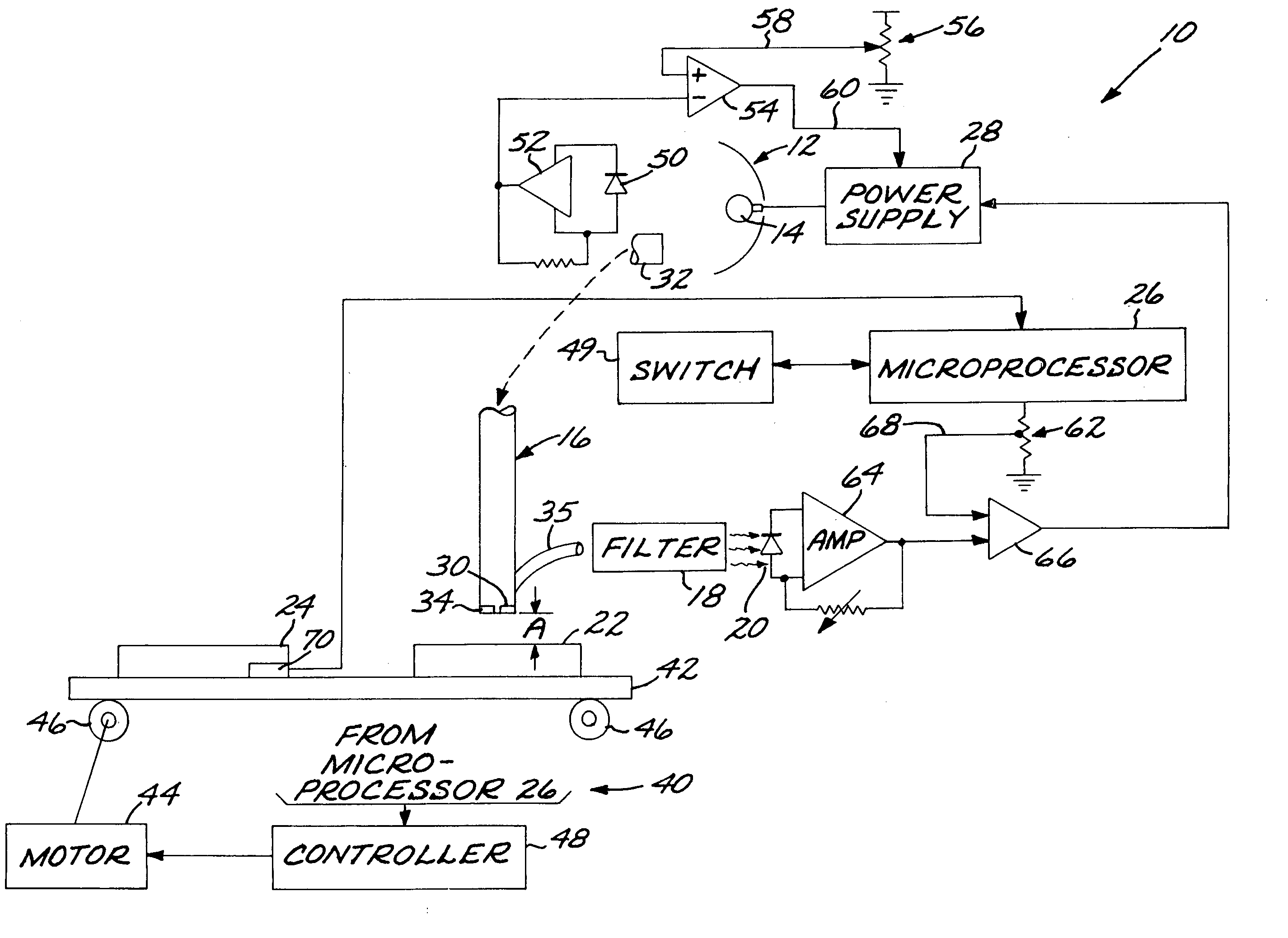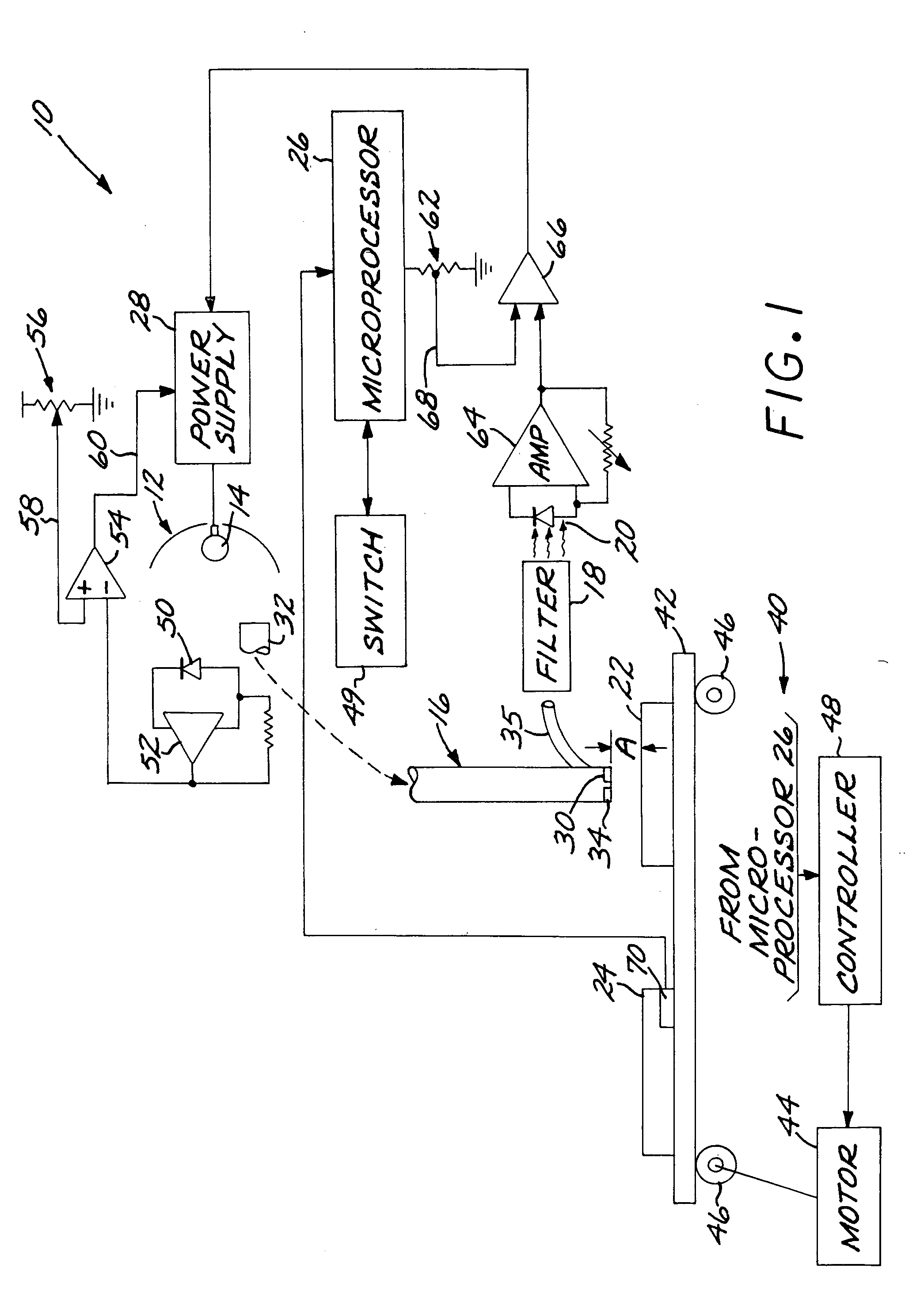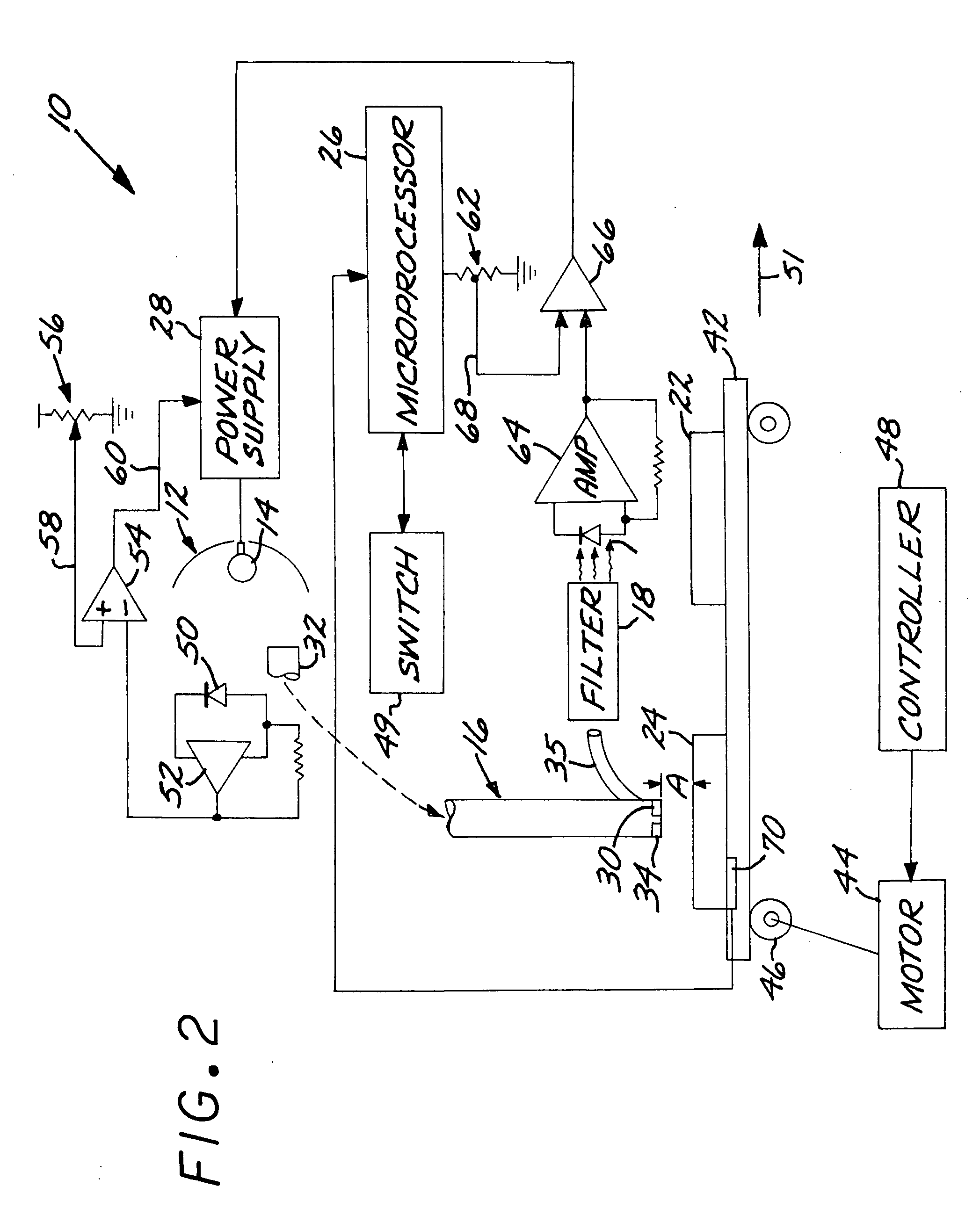Method for sensing and controlling radiation incident on substrate
a radiation incident and radiation sensing technology, applied in the field of sensing and controlling radiation incident on substrates, can solve the problems of not addressing one of the more important aspects of the state of the curing device, unable to provide an accurate reading for control purposes, and the source can disperse, etc., to achieve the effect of deposited energy density
- Summary
- Abstract
- Description
- Claims
- Application Information
AI Technical Summary
Benefits of technology
Problems solved by technology
Method used
Image
Examples
Embodiment Construction
[0023] Referring now to the Figure, the system 10 of the present invention is illustrated in the first, or operating, mode of operation. The components labeled with the same reference numerals in FIGS. 1 and 2 identify identical components. In this example, a UV source or radiation is utilized. However the present invention can be utilized with any other type of radiation field and source.
[0024] The basic components of system 10 comprise of a point source U.V. illuminator 12 having a UV source 14 at the focal point of illuminator 12, fiber optic light guide 16, filter 18, feedback sensor diode 20, working substrate 22, standard substrate 24, microprocessor 26 and power supply 28.
[0025] The fiber optic light guide 16 comprises a distal (output) end 30, a proximal (input) end 32 and a sensing, or feedback, branch 34.
[0026] The UV source 14 is energized by power supply 28, which in turn is controlled by sensor 20.
[0027] The energy from the illuminator 12 is focused and concentrated...
PUM
 Login to View More
Login to View More Abstract
Description
Claims
Application Information
 Login to View More
Login to View More - R&D
- Intellectual Property
- Life Sciences
- Materials
- Tech Scout
- Unparalleled Data Quality
- Higher Quality Content
- 60% Fewer Hallucinations
Browse by: Latest US Patents, China's latest patents, Technical Efficacy Thesaurus, Application Domain, Technology Topic, Popular Technical Reports.
© 2025 PatSnap. All rights reserved.Legal|Privacy policy|Modern Slavery Act Transparency Statement|Sitemap|About US| Contact US: help@patsnap.com



